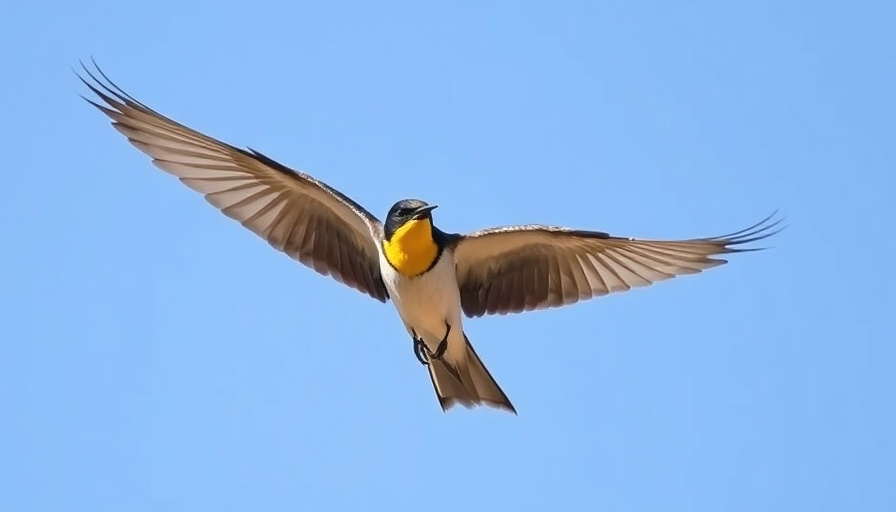
The Clever Tactics of Kingbirds: Nature's Aerial Pirates
Kingbirds, agile and resourceful members of the flycatcher family, display remarkable ingenuity in their hunt for food. While typically adept at snatching insects from the air, recent observations in Arizona reveal a surprising twist: these skilled birds have learned to steal cicadas from cicada-killer wasps. Cassin’s and Thick-billed Kingbirds lurk near wasp burrows, waiting to exploit the wasps' labor as they transport their paralyzed cicada prey. This tactical approach underscores the adaptability and intelligence of these birds, making them true aerial pirates.
Understanding the Dynamics of Kleptoparasitism
The phenomenon of kleptoparasitism, whereby one species steals food caught by another, is a key trait seen in nature. In this case, the kingbirds expertly observe and anticipate the wasps' flights back to their underground nests. As the wasps carry their hefty cicada cargo, the kingbirds take advantage. Research shows that these ambush tactics lead to a successful theft rate of about seventy percent, posing a significant threat to cicada-killer wasp populations in high-density areas, such as Ruby, Arizona.
The Essential Role of Cicada-Killer Wasps
Cicada-killer wasps themselves are fascinating creatures with a crucial role in their ecosystem. By capturing and paralyzing cicadas, they provide a rich food source for their developing young. Yet, they face dual threats: aerial predators like kingbirds and roadrunners, as well as competition from other wasps. The balance of survival in such environments highlights the interconnectedness of species and their persistent struggle for existence.
Implications for Ecosystem Dynamics
This interplay among kingbirds, cicada-killer wasps, and roadrunners raises insightful questions about the roles species play in their habitats. The high rates of kleptoparasitism can encourage adaptations and behavioral changes among wasps. Furthermore, as avian predators exert pressure, wasps may resort to stealing cicadas from one another—an evolutionary response driven by necessity and competition for resources.
Nature's Intriguing Survival Strategies
The remarkable behaviors exhibited by kingbirds not only portray their resourcefulness but also serve as a compelling reminder of nature's complexity. As you observe these skilled birds in their natural habitat, consider the delicate balance of survival strategies they deploy, showcasing the joy and wonder that comes with understanding our natural world.
For those interested in the dynamics of predator-prey relationships in nature, observing these interactions can inspire deeper inquiries into ecological balance. Stay curious, and watch for the clever tactics these birds employ!
 Add Row
Add Row  Add
Add 




 Add Row
Add Row  Add
Add 

Write A Comment